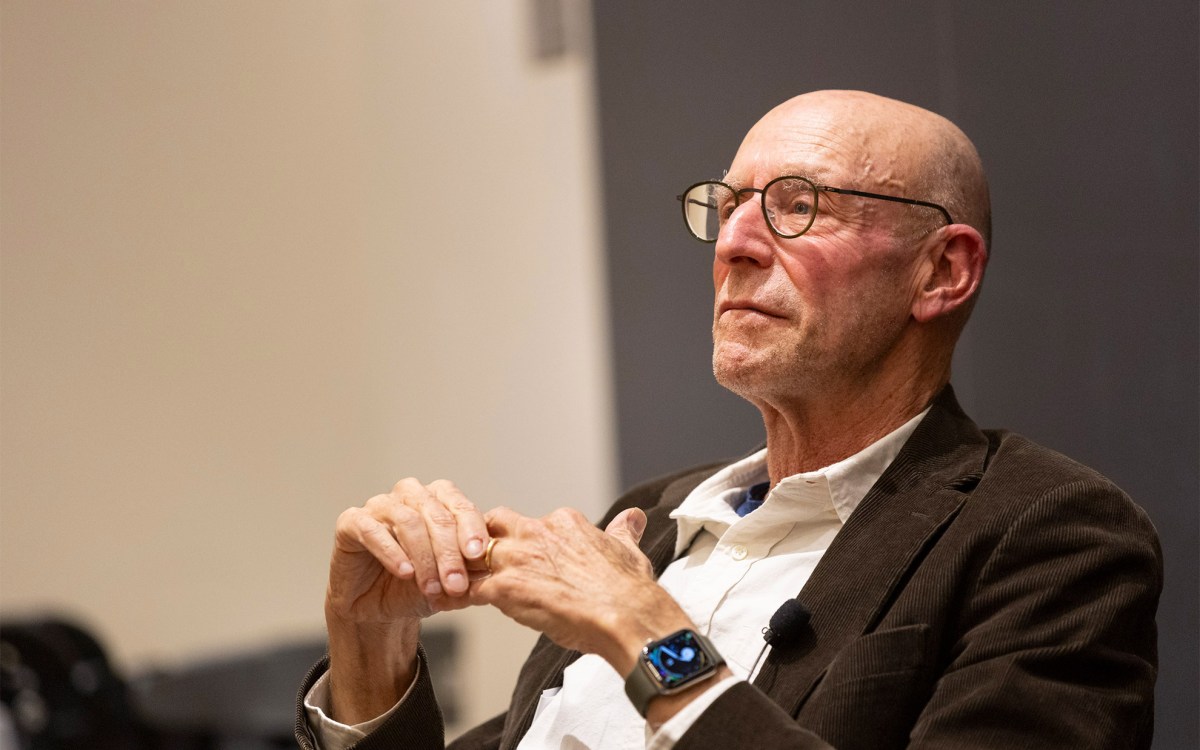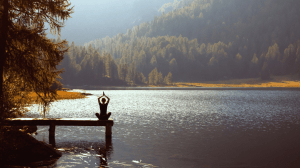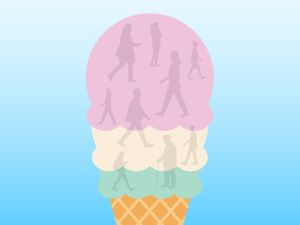Campus & Community
-

Tracing Harvard’s ties to slavery: Recovering names and histories
Researchers delve into probate records, tax lists, and estate inventories to identify enslaved people
-

Ballot order set for Overseer and HAA director elections
Candidates finalized ahead of spring voting period
-

Kicking back with Rose Byrne
Australian actress feted, roasted as Hasty Pudding Woman of the Year
-

What’s the greatest love song of all time?
Faculty and administrators tell you theirs
-

Of different faiths, but connected by belief
Community members gather to explore identity, spiritual experience at first ‘Across This Table’ interfaith dinner
-

Batman returns — to accept his Pudding Pot
Michael Keaton feted as Hasty Pudding’s Man of the Year, 30 years after first invite
-
HMS seeks grant, fellowship nominations
Each year more than 50 postdoctoral and faculty fellowships/grants are available to the Harvard medical community by invitation only. The private foundations that fund these grants permit a limited number of individuals to be nominated for these awards. (Individuals cannot apply for these directly, but must be nominated by the institution.) In order to choose candidates that will represent the Harvard medical community in the national competitions, an internal selection process is conducted by the Harvard Medical School (HMS) Faculty Fellowship Committee.
-
MacArthur Foundation awards $3 million to Berkman Center, OpenNet Initiative
The John D. and Catherine T. MacArthur Foundation has awarded $3 million to the Berkman Center for Internet & Society and its partners to advance their collaborative study of state-sponsored Internet filtering worldwide through the OpenNet Initiative.
-
University Library receives grant
The Harvard University Library (HUL) has received a grant of $600,000 from the Andrew W. Mellon Foundation for the development of a registry of authoritative information about digital formats. Detailed information about the format of digital resources is fundamental to their preservation. The two-year project will result in a new Global Digital Format Registry (GDFR), which will become a key international infrastructure component for the digital preservation programs of libraries, archives, and other institutions with the responsibility for keeping digital resources viable over time.
-
New professorship addresses energy
HARVARD GAZETTE ARCHIVES New professorship addresses energy William Hogan named first Raymond Plank Professor of Global Energy Policy at KSG A new professorship devoted to global energy policy has been created at Harvard’s Kennedy School of Government (KSG) to help address the enormous challenges of meeting worldwide energy needs in a timely, secure, environmentally responsible, and economic manner.
-
Sewall named director of Carr Center for Human Rights Policy
Sarah Sewall was appointed director of the Kennedy School of Government’s (KSG) Carr Center for Human Rights Policy on Jan. 25. She began her appointment immediately and will serve through the 2006-07 academic year.
-
HUAM names Ebbinghaus new curator of ancient art
The Harvard University Art Museums (HUAM) recently announced the appointment of Susanne Ebbinghaus as the George M.A. Hanfmann Curator of Ancient Art. Ebbinghaus has been serving as a curatorial research associate in the Department of Ancient and Byzantine Art and Numismatics at Harvard University Art Museums and recently spent a year at the University of Toronto, investigating cultural exchanges between Greece and the Near East on a fellowship from the Gerda Henkel Foundation. The appointment will become official in early February.
-
Gift from Jordans advances FAS, health research
The Faculty of Arts and Sciences (FAS) and disease-fighting researchers across Harvard are the recipients of Jerry and Darlene Jordan’s recent $10 million gift to the University. The gift is just the latest expression of the Jordans’ generosity: Over the years, Jerry ’61, M.B.A. ’67, and Darlene Jordan have funded financial aid, athletics, and other programs at Harvard College and the Business School.Five million dollars of their gift is designated for the Faculty of Arts and Sciences to help strengthen FAS programs, as well as enrich student life at the College.
-
Herman is assistant dean for communications at HSPH
Robin Herman has been appointed assistant dean for communications at the Harvard School of Public Health (HSPH). She has served as director of the School’s office of communications for the past six years.
-
Harvard senior is Bermuda’s Rhodes Scholar
Harvard senior Jay A.H. Butler has been named Bermuda’s Rhodes Scholar for 2006.
-
Two University Professors appointed
Two members of the Faculty of Arts and Sciences (FAS) have been appointed to University Professorships. Laurel Thatcher Ulrich, currently the James Duncan Phillips Professor of Early American History, known for her work on daily life in late 18th and early 19th century America, has been appointed the 300th Anniversary University Professor. Peter Galison, the Mallinckrodt Professor of the History of Science and of Physics, best known for his studies of 20th century microphysics, has been named the Joseph Pellegrino University Professor.
-
Crimson get set for icy rivalry
The Harvard men’s and women’s hockey teams will battle Boston University for Beantown bragging rights early next week in the opening rounds of the 54th and 26th annual Beanpot Tournaments, respectively.
-
Tennis camp registration now under way
The Tennis Camps at Harvard (TCH), one of the area’s most appealing summer activities for children and adults, will start its 16th season on June 12 at the Beren Tennis Center at Soldiers Field Athletic Complex.
-
Skocpol joins Radcliffe as senior adviser
Theda Skocpol, dean of the Graduate School of Arts and Sciences (GSAS), has accepted a three-year term as a Radcliffe Institute for Advanced Study senior adviser in the social sciences, effective Jan. 1.
-
Sidanius named professor of African American Studies
James H. Sidanius, a psychologist best known for establishing and refining an influential theory of social dominance along lines of gender, age, race, and class, has been named professor of psychology and of African and African American Studies in Harvard University’s Faculty of Arts and Sciences, effective Jan. 1.
-
Sports in brief
Crimson ski teams take ninth at opening carnival; Women’s tennis swings a sweep vs. Terriers
-
This month in Harvard history
This month in Harvard history: February
-
Police reports
Following are some of the incidents reported to the Harvard University Police Department (HUPD) for the week ending Jan. 30. The official log is located at 1033 Massachusetts Ave., sixth floor.
-
President Summers’ office hours in ’06
President Lawrence H. Summers will hold office hours for students in his Massachusetts Hall office.
-
In brief
Course in reading, study strategies set to begin in mid-February; Lewis and Clark exhibit extends stay at Peabody Museum through 2006
-
Memorial services
Memorial services for David Westfall, William W. Howells, and Marion R. Briefer
-
Story Professor of Law Arthur von Mehren dies at 83
Arthur Taylor von Mehren, the Story Professor of Law Emeritus at Harvard Law School (HLS), died Jan. 18 at the age of 83. In addition to educating thousands of Harvard Law students over the course of a 50-year teaching career, von Mehren was a pioneer in comparative and private international law. He helped to develop new thinking on a range of legal issues including international jurisdictions, commercial arbitration, and comparative constitutional law.
-
CfA’s Gaensler wins Newton Lacy Pierce Prize
Assistant Professor of Astronomy Bryan M. Gaensler of the Harvard-Smithsonian Center for Astrophysics (CfA) has been awarded the 2006 Newton Lacy Pierce Prize by the American Astronomical Society (AAS). Gaensler received the prize for his work on the interactions between neutron stars and their surroundings, which led to a greater appreciation of the wide diversity of magnetized neutron stars.
-
Kirby to step down as dean of FAS
William C. Kirby, dean of the Faculty of Arts and Sciences (FAS) and Geisinger Professor of History, has announced his plans to step down from the deanship at the end of the 2005-06 academic year. He will return to his scholarship and teaching, and take on a university-wide role in guiding Harvards expanding array of academic initiatives focused on China, while serving as director of Harvards John King Fairbank Center for East Asian Research.
-
Greenblatt edits ‘Norton Anthology’
When I was in college, The Norton Anthology of English Literature ended with Dylan Thomas. Bringing up the rear in this long parade of writers was not a position likely to win the Welsh poet new readers. With so many older figures to cover, my English professor never even got to Thomas. The most recent poet we read was T.S. Eliot. After that, we were on our own.
-
Eight seniors awarded 2006-07 Rockefeller Fellowships
Concluding its annual meeting and interviews at Harvard this past December, the Michael C. Rockefeller Memorial Fellowships Administrative Board has awarded fellowships to eight graduating seniors – the most ever awarded by the board in a single year, in recognition of an excellent applicant pool. Rockefeller Fellowships contribute $18,000 toward a year of purposeful postgraduate immersion in a foreign culture for candidates at critical stages in their development who feel a compelling need for new and broadening experience.
-
And the Pudding Pot goes to…
The Hasty Pudding Theatricals, the nations oldest dramatic organization, has named its recipients for the 2006 Woman of the Year and Man of the Year awards – Halle Berry and Richard Gere.
-
Jones premieres film at HFA
Tommy Lee Jones 69 returned to Harvard to attend the premiere of his new film, The Three Burials of Melquiades Estrada. The film marks Jones debut as the director of theatrical films (he directed a TV movie, The Good Old Boys, in 1995). This time, however, he is also co-producer, co-writer, and star.
-
Playing with the big boys
Its just one of those nights when you know youre going to get a full house, said Allston Brighton resident Dan McLaughlin as he watched his two boys stickhandling pucks and kicking up plumes of ice with a bunch of other excited boys, girls, and Harvard hockey players under the lights of the Bright Hockey Center.
-
Kirby to step down as Dean of FAS
William C. Kirby, Dean of the Faculty of Arts and Sciences (FAS) and Geisinger Professor of History, has announced his plans to step down from the deanship at the end of the 2005-06 academic year.
-
Gift drive HQ
Robert Bridgeman (from left), director of PBH Programs, Amanda Sonis Glynn, director of the Harvard Public Service Network, Mina Makarious 06, and Mae Bunagan 06 seem to enjoy sorting through gifts donated for the Phillips Brooks House gift drive.


